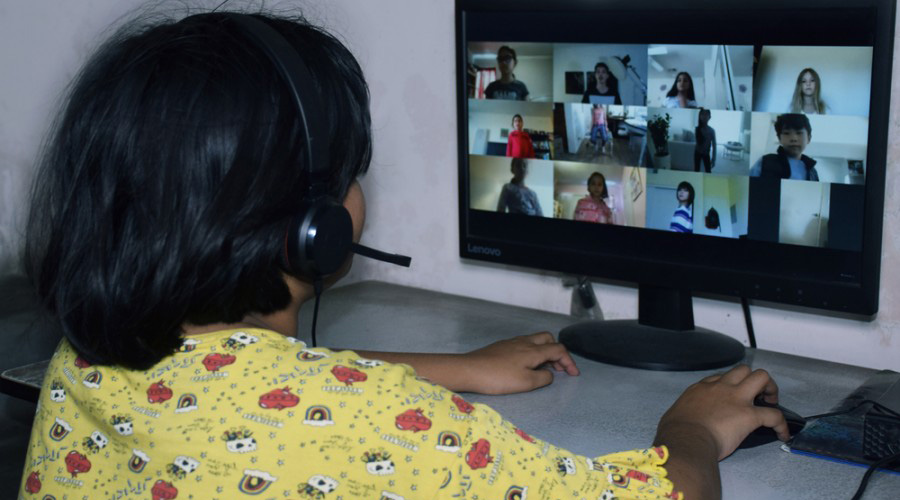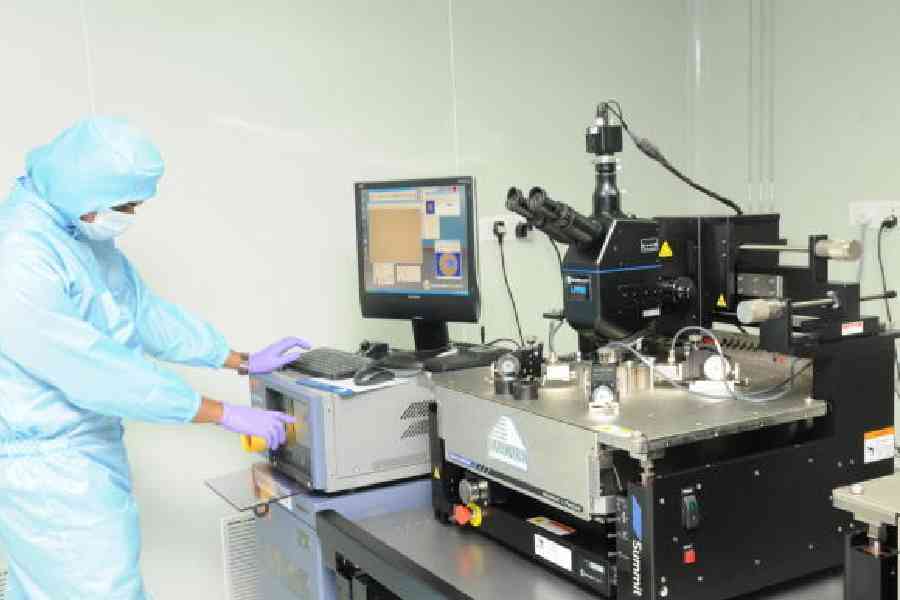Children in pre-primary schools are missing out on key lessons on social and conversation skills and how to share attention in the absence of in-person classes.
The Covid pandemic has not only impacted the senior students but also children who had just started going to school or were about to.
Teachers point out that students learn a lot more in school than letters and numbers — they learn from the environment, pick up vocabulary by listening to teachers, develop a work habit and take the first steps towards becoming independent.
In the absence of in-person classes, which have been suspended since March last year as a precaution against Covid, the little learners are being deprived of the much-needed hand-holding by teachers.
Across schools teachers are taking classes online but several of them said they were noticing areas where children are falling behind. Classrooms are designed in a way that they become learning spaces, said teachers.
Suman Sood, the mentor of the Calcutta, Odisha and Kerala territories of Early Childhood Association, a forum of pre-schools, said there was “a prepared environment in school” that is missing in homes.
Loreto House, for example, has a book corner, from where a child can pick up any book. Similarly, the school has a nature corner for the children to plant seeds. All these are part of the learning process.
“Children are split into smaller groups and each group does a different activity. Teachers monitor them. In an online class, on the other hand, all of them do the same activity,” said Aruna Gomes, the principal of Loreto House.
“For example, in an online class, all children are involved in making play dough, which helps hand-eye coordination. But this is not always possible for teachers to gauge virtually,” she said.
In a school environment, children pick up a lot of things such as vocabulary automatically by listening to teachers or from observations.
“Spoken English skills, making conversations, pronunciation and enunciation have been compromised. Earlier, too, they would make mistakes but continuous feedback from teachers in school would help them get corrected,” said Nupur Ghosh, the vice-principal of Mahadevi Birla World Academy.
The school acts as a leveller. Though children come from various environments, there is a “uniformity in school”, which is missing across homes.
Many children come from nuclear homes, where they are surrounded by adults and are often the sole object of attention.
“In school, they are in the company of other children of their age and they learn to share the attention of one teacher. They are one in many and that motivates them to do things,” said Suvina Shunglu, the principal of Sri Sri Academy.
Children also learn by imitating each other. “The school is a space for social interaction and making friends. They learn how to behave in front of outsiders or strangers,” said John Bagul, the principal of South City International School.
“In school, she would have learnt with other children, but at home I have to sit with her... so that she finishes her work,” said the mother of a four-year-old.
“Social and interactive skills are getting impacted but parents can give stimulation at home with certain kinds of toys, blocks, puzzles that will help the child to learn and pick up things,” said Devi Kar, the director of Modern High School for Girls.










